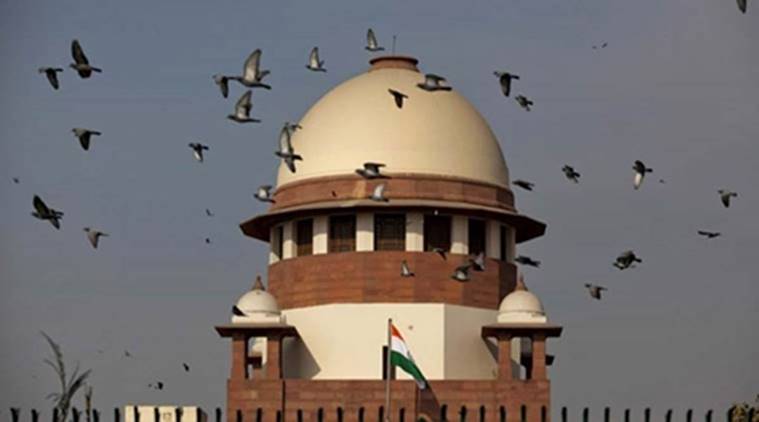The Supreme Court of India has come up with several gender friendly judgments recently. These have been marked with sensitivity and liberalism. Women all over India have welcomed these, albeit with reservations. I discuss some of these below.
SC strikes down triple talaq:
SC held the practice of triple talaq, that is verbal divorce by saying talaq three times, as unconstitutional and struck it down by 3:2 majority. The SC stated that the practice violates the fundamental right of Muslim women and ends the marriage without any chance of reconciliation. Moreover, the practice did not give equal rights to men and women. The judgment was seen as a victory for all the women affected by the practice. It recognized the brave fight of the petitioners including Shayara Bano, Ishrat Jahan, Gulshan Parween, Aafreen Rehman, and Atiya Sabri as well as Bharatiya Muslim Mahila Andolan.
However triple talaq judgement has been criticized for essentially making a criminal offence what should be a civil matter. Also it has just criminalized pronouncement of talaq and thus offers no protection to women whose husbands might abandon them anyway (without saying talaq).
SC decriminalizes sex between consenting adults of the same sex:
Doing away with colonial era Section 377 was perhaps Supreme Court’s one of the most vital judgments in ensuring belated justice to the LGBTQ community as well as affirming India’s stance as a nation that is defined by liberalism and acceptance. SC further stated that consensual sex between adults is a private space and that Section 377 resulted in discrimination and is violative of constitutional principles.
This verdict was a victory for many dedicated organizations and individuals who stood for the right to love without fear and intimidation. PIL filed by Naz Foundation sought to repeal the act in 2001 (in 1994 ABVA, another NGO had sought its repeal). Shashi Tharoor, MP, had introduced a private member’s bill to decriminalize homosexuality (Lok Sabha had voted against the same).
SC strikes down adultery law:
The Supreme Court struck down 158-year-old Section 497 of the Indian Penal Code, which criminalises adultery as unconstitutional. The archaic adultery law was patriarchal and treated woman as the property of her husband. It stated, “whoever has sexual intercourse with a person who is and whom he knows or has reason to believe to be the wife of another man, without the consent or connivance of that man, such sexual intercourse not amounting to the offense of rape, is guilty of the offense of adultery”. The judgment ruled that Section 497 was violative of woman’s right to dignity and infringed upon Article 21 of the Constitution of India and that husband is not the master of wife.
The judgment was welcomed by most as progressive in ensuring gender equality. Some like the DCW Chief Swati Maliwal criticised the same saying that it have the legitimacy to married couples to have illegitimate relationships. Others pointed out to her that if fear of law was what was keeping couples together then marriage did not amount to much anyway.
SC opens Sabarimala temple for women of all ages:
The Supreme Court struck down a rule that disallowed girls and women from the ages of 10-50 from entering Sabarimala temple in Kerala. The bench stated that the temple rule violated their right to equality and rthe ight to worship. The custom was seen as a form of “untouchability” – “Article 17 certainly applies to untouchability practices in relation to lower castes, but it will also apply to the systemic humiliation, exclusion and subjugation faced by women.”
While Justice Malhotra expressed dissent stating that matters of faith, even if irrational, should be left alone, others like Justice Chandrachud stated that cthe onstitution should not become an instrument for the perpetuation of patriarchy. All welcomed the judgement. Some did point out that instead of temple entry women should focus more on their fight for rights for equal pay for equal work. Others argued that both are important and fight for one should not preclude fight for other.
Recently the Supreme Court also restored the provision for immediate arrest under Section 498A with the rider that those arrested for cruelty to a married woman over dowry can approach the courts for bail to prevent the alleged misuse of the law. Social Action Forum, as NGO, had argued that earlier dilution of the law had only made things worse for women facing dowry harassment.
These recent judgements have given hope that other patriarchal practices and acts might also be struck down soon. There has been a demand to criminalise marital rape for some time now. Currently, the Delhi High Court is hearing petitions for the same. While conservative groups have argued that the definition of ‘marital rape’ is ambiguous and that it may destabilise the institution of marriage and become a tool for harassing the husband; others have rightly pointed out that violence and rape within marriage are common and a serious problem. In order to ensure the sexual and mental autonomy of woman and in order to take the conversation on consent forward strict law on marital rape is required.
Disclaimer: The opinions expressed in this article are the personal opinions of the author.


















